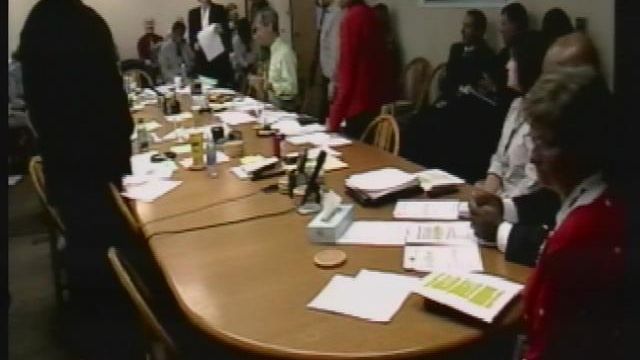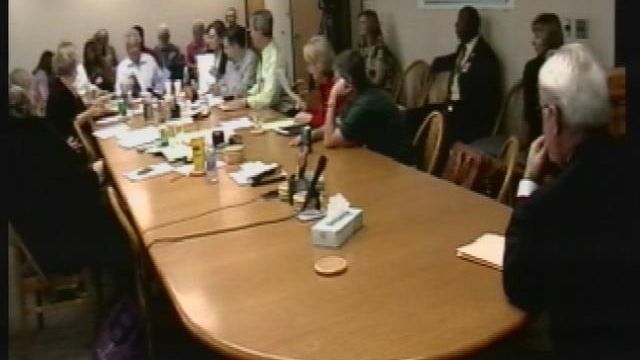Wake schools' future holds thousands more students than desks for them
Despite the economic slowdown and shrinking funds for education, projections show Wake County schools will continue to have more students every year.
Posted — UpdatedEven with current building plans, population projections by forecasters at North Carolina State University show the system will start to run out of seats in all grades about the 2014-15 school year and will fall thousands of seats short by 2019-20, Don Haydon, the district's chief of facilities, reported during a board work session.
Even that projection, Haydon explained, assumes 100 percent occupancy in every school, a situation administrators try to avoid because they cannot foresee every development during a school year.
"We have nine years to build 34 new schools to be even more crowded than we are now?" including using larger schools and year-round schools, member John Tedesco asked with surprise in his voice.
The number of 34 came from enrollment projections Haydon showed the board, but he stressed that there are large variables in how to handle the growth, including the new assignment plan.
The board earlier this year voted 5-4 to shift to a policy that tries to assign students to schools near their homes and that gives up on a decade-long effort to balance socioeconomic diversity across schools. How that will affect the need for classroom seats is an unknown while a committee tries to devise a way to implement the policy.
Another part of the board's challenge is that different parts of the county have different growth projections. Eastern Wake is expected to grow more while western Wake's growth slows, the staff has told the board before.
The system will be short about 19,700 elementary school seats by 2019-20, Haydon said. Middle schools will need about 8,000 more seats by then, and high schools will be short about 11,800 seats, he told the board.
Other unknowns in calculating what will be needed to accommodate the growth include what calendar will be used at which schools – traditional or calendar – and what courses will be offered and what facilities those will require.
"What I wanted to do today is plant the seed of information with the board," Haydon told the board members. "We need to start the discussion" of what to do, he said.
The assignment policy itself brought some stern exchanges between board members earlier.
Board member Deborah Prickett said she wanted guidance on what members should be telling parents about the transition to community-based assignment. Member Anne McLaurin said she is explaining to parents how the new assignments apparently will be based on a map that uses high school attendance zones as a starting point.
Members Debra Goldman and Carolyn Morrison clashed on whether a school principal or Morrison had asked for a public meeting she held at Reedy Creek Elementary School. Morrison said the principal had requested the meeting, but Goldman said Morrison had.
Margiotta said that members who want to have meetings in schools are supposed to go through the administration to arrange for them, and there may be expenses. It's a process "we must all follow," Margiotta told McLaurin and Morrison. Expenses might have to be approved by the full board, he said.
Tedesco warned that all parts of the new assignment plan are still uncertain, including the maps, and asked members to think through "what makes sense moving forward" for public meetings. He wanted to avoid having board members send "mixed messages" to the public.
The development process laid out by staff calls for community meetings to discuss proposals, but not until many more details have been worked out.
A Student Assignment Committee that Tedesco chairs is trying to work out an assignment map, the Raleigh-Wake County Chamber of Commerce has hired a nationally known consultant on "controlled choice" assignment plans, Michael Alves of Boston, to work on the goal. The chamber, the Raleigh City Council, the Wake County Board of Commissioners and the state Legislature have all expressed concern about the decision to stop trying to have socioeconomic balance in the county schools.
• Credits
Copyright 2024 by Capitol Broadcasting Company. All rights reserved. This material may not be published, broadcast, rewritten or redistributed.






